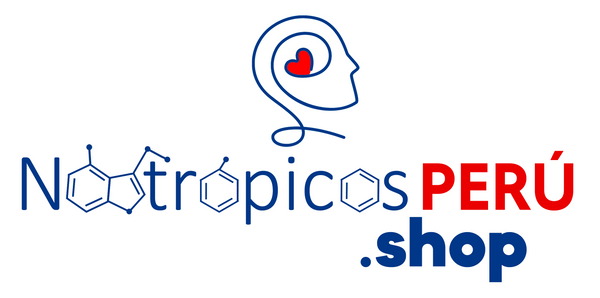¿Qué es el Palmitato de Ascorbilo?
Compuesto molecular avanzado de Vitamina C con alta biodisponibilidad. Desarrollado para optimizar absorción y función celular. Supera limitaciones de formas tradicionales de vitamina C. Representa solución farmacológica de vanguardia.
¿Cómo actúa en el organismo?
Interactúa selectivamente con sistemas celulares moleculares. Neutraliza radicales libres con extraordinaria precisión. Modula procesos metabólicos y de defensa celular. Optimiza respuesta antioxidante a nivel molecular.
¿Cuáles son sus principales beneficios?
Fortalece sistema inmunológico con mecanismos moleculares precisos. Protege contra daño oxidativo celular. Contribuye a síntesis de colágeno y función cardiovascular. Optimiza procesos metabólicos y de regeneración.
¿Es seguro su consumo?
Desarrollado bajo protocolos científicos estrictos. Requiere supervisión profesional para administración. Posee mecanismos de acción molecular controlados. Evaluación individual garantiza seguridad.
¿Produce efectos secundarios?
Potenciales efectos leves transitorios documentados. Variaciones individuales dependen de metabolismo personal. Generalmente bien tolerado bajo protocolos adecuados. Requiere seguimiento profesional.
¿Puede combinarse con otros suplementos?
Posibles interacciones requieren evaluación molecular detallada. Cada combinación necesita valoración individualizada. Supervisión especializada fundamental para compatibilidad. Depende de características metabólicas específicas.
¿Afecta el rendimiento físico?
Optimiza función celular mediante protección antioxidante. Mejora recuperación muscular y defensa inmunológica. Contribuye a reducción de fatiga oxidativa. Potencia rendimiento molecular.
¿Influye en sistema inmunológico?
Modula respuesta inmune con precisión molecular. Incrementa producción de células defensivas. Optimiza comunicación del sistema inmunológico. Contribuye a defensa contra patógenos.
¿Cuánto tiempo tarda en mostrar resultados?
Efectos progresivos observables entre 4-8 semanas. Depende de condición individual y metabolismo. Respuesta varía según protocolo de administración. Seguimiento profesional optimiza resultados.
¿Puede usarse en deportistas?
Potencia recuperación física mediante defensa antioxidante. Optimiza función inmunológica durante entrenamiento. Contribuye a reducción de estrés oxidativo. Requiere protocolo especializado.
¿Tiene contraindicaciones?
Requiere evaluación médica previa detallada. No recomendado en condiciones específicas de salud. Valoración individual determina viabilidad. Supervisión profesional fundamental.
¿Cómo almacenar el producto?
Conservar en lugar fresco controlado. Proteger de luz y humedad. Mantener fuera del alcance de niños. Respetar condiciones de empaque original.
¿Puede tomarse durante el embarazo?
No recomendado sin supervisión médica especializada. Posibles riesgos potenciales de desarrollo. Requiere evaluación médica exhaustiva. Contraindicado en etapas críticas.
¿Influye en el peso corporal?
Sin impacto directo significativo en masa corporal. Posible estabilización metabólica indirecta. Variación depende de factores individuales. No constituye suplemento para control de peso.
¿Qué hacer si se olvida una dosis?
No duplicar dosis bajo ninguna circunstancia. Continuar con siguiente dosis programada. Mantener esquema regular de administración. Consultar protocolo específico.
¿Afecta función hormonal?
Participa sutilmente en regulación molecular hormonal. Mejora sensibilidad de receptores endocrinos. Contribuye a equilibrio molecular. Optimiza comunicación sistémica.
¿Puede ayudar en estrés?
Modula respuestas moleculares ante estrés oxidativo. Contribuye a equilibrio molecular. Optimiza función de defensa celular. Reduce impacto de estrés oxidativo.
¿Tiene interacciones medicamentosas?
Posibles interacciones requieren evaluación detallada. Necesaria valoración farmacológica previa. Cada combinación demanda análisis molecular. Supervisión profesional fundamental.
¿Es un medicamento o suplemento?
Compuesto farmacológico molecular especializado. Requiere prescripción profesional. No constituye suplemento de venta libre. Desarrollado bajo protocolos científicos.
¿Qué hacer en caso de sobredosis?
Suspender inmediatamente consumo. Solicitar atención médica urgente. Posibles alteraciones moleculares transitorias. Intervención temprana previene complicaciones.
¿Influye en sistema respiratorio?
Optimiza función respiratoria mediante protección molecular. Contribuye a defensa contra infecciones pulmonares. Reduce inflamación de vías respiratorias. Mejora respuesta inmune en sistema pulmonar.
¿Puede ayudar en problemas circulatorios?
Contribuye a salud cardiovascular con mecanismos moleculares. Optimiza función endotelial y flexibilidad vascular. Reduce oxidación de lipoproteínas. Mejora circulación sanguínea.
¿Tiene efectos antiinflamatorios?
Modula procesos inflamatorios a nivel molecular. Reduce producción de citoquinas proinflamatorias. Optimiza respuesta molecular antiinflamatoria. Contribuye al equilibrio sistémico.
¿Afecta función ocular?
Protege estructuras oculares contra daño oxidativo. Contribuye a prevención de degeneración macular. Mejora función de células retinales. Optimiza salud visual molecular.
¿Puede usarse en personas mayores?
Optimiza función molecular en adultos de edad avanzada. Contribuye a mantenimiento de defensas inmunológicas. Mejora procesos metabólicos celulares. Potencia capacidades de regeneración.
¿Influye en sistema digestivo?
Regula procesos digestivos a nivel molecular. Optimiza absorción de nutrientes. Contribuye al equilibrio intestinal. Mejora función enzimática digestiva.
¿Tiene efectos sobre salud mental?
Modula respuestas moleculares relacionadas con estrés. Contribuye a equilibrio neurológico. Optimiza función de neurotransmisores. Mejora respuesta molecular al estrés.
¿Puede ayudar en deficiencia mineral?
Optimiza absorción de minerales a nivel molecular. Contribuye al equilibrio nutricional. Mejora biodisponibilidad de nutrientes. Regula procesos metabólicos específicos.
¿Afecta función hepática?
Contribuye a protección molecular del hígado. Optimiza procesos de desintoxicación. Reduce estrés oxidativo hepático. Mejora función metabólica hepatocelular.
¿Tiene impacto en sistema endocrino?
Modula procesos hormonales a nivel molecular. Optimiza función de glándulas endocrinas. Contribuye al equilibrio hormonal. Mejora comunicación molecular endocrina.

















